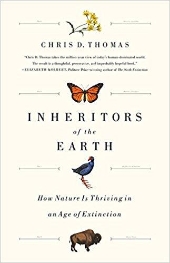 Author's Summary
Author's Summary
America’s four thousand species of native bees flit about the countryside in the shadow of their charismatic cousin, the honey bee, a colonial-era European import. In my book, I turn the light on our myriad native bees and show people how varied, fascinating, and useful they are.
This book isn’t a guide to bees, although it does have many beautiful photos (almost none of which are mine). This book is the story of a long-time gardener’s discovery and exploration of America’s bees. When I learned a few years ago that honey bees can’t pollinate tomatoes but some our our native bees can, I took the first step into a previously hidden world outside my door. This book is about that world. I seek out the country’s best bee stories and meet the people involved. I visit farms, fields, labs, and even golf courses. I attend classes and hunt wild bees with scientists, and through it all, I work to evolve my tiny city garden into a haven for bees.
Bees matter. The earth looks the way it does, and we eat what we eat because of bees, yet no one seems to know it. I plan to change that. I hope to start a revolution where people throw out their weed-n-feed and start planting flowers in the lawn for the bees.
Our Native Bees is one of the finalists for the 2019 Washington State Book Award!
Where to get it?
Get the book from Workman Publishing
Where to hear more about it?
'Science Friday' Interview with Ira Flatow
Related Threads
What if honey bees were an invasive species thread at Permies
Promiscuously Pollinated Tomatoes and the Bees That Make Them Possible at Permies
Related Websites
Paige Embry's website










